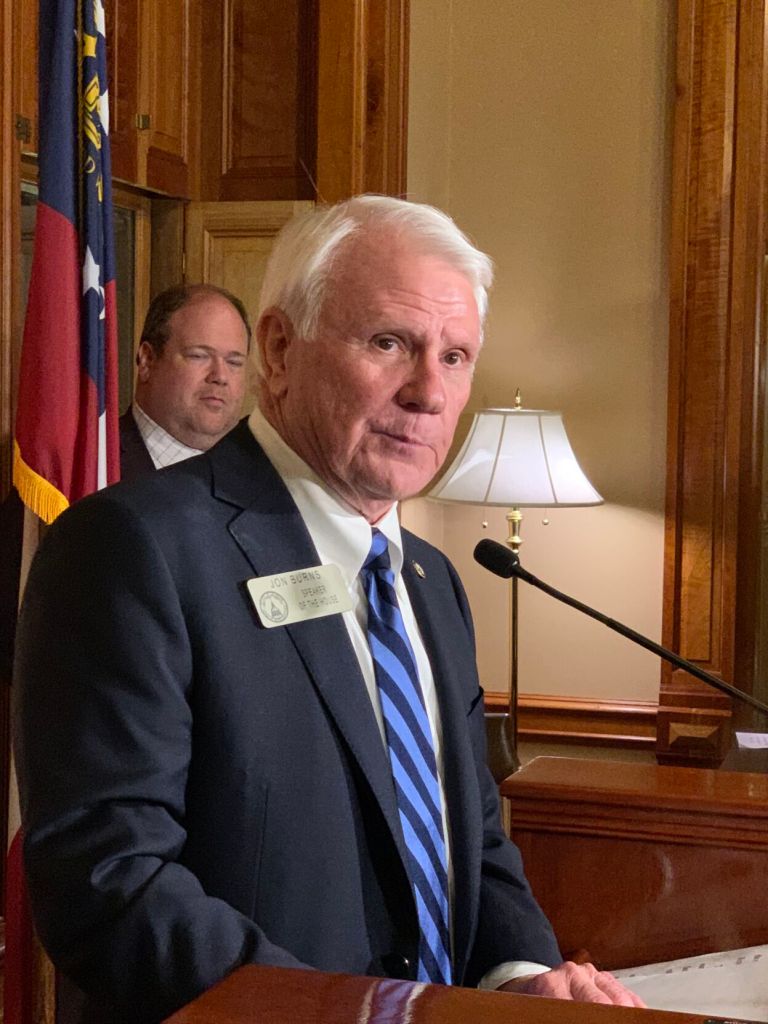School voucher proposal fails
Published 3:29 pm Monday, April 3, 2023

- Georgia House Speaker Jon Burns, a Republican, spoke during a press conference after the last day of the 2023 legislative session. He told reporters he would have voted in support of the private school voucher bill if given an opportunity.
ATLANTA — Cheers of joy rang on the House floor as a bill to allow vouchers for alternatives to public school failed to advance on the last day of the legislative session.
Called the “Georgia Promise Scholarship Act,” Senate Bill 233 sought to establish a “promise scholarship account” to be funded by the state for up to $6,500 per school year per student for education-related expenses.
In signing an agreement for the scholarship, parents would not be able to enroll their child in a local school system, local charter school or state charter school while participating in the program.
“At the end of the day, we have the obligation to give every child in this state, maybe at the best school or maybe bullied at one of the failing 25%, we must give them that option,” Republican Rep. Todd Jones, House sponsor of the bill, said before the vote. “I ask you to vote yes because they should have the option of public school, of private school, of hybrid school and also homeschooling.”
SB 233 had been amended several times between the House and Senate before ultimately coming to an end March 29.
Speaker Pro Tem Jan Jones made a shocking motion to table the bill last week, a signal that the bill likely wouldn’t have enough votes from Republicans, which dominate both the chambers of the Georgia General Assembly
The bill was removed from the table on Sine Die and committed to the House Rules Committee, which added two amendments to the bill hours later.
One of the amendments was to allow the voucher amount to be adjusted annually to reflect annual austerity adjustments and be in line with the current {span}Quality Basic Education{/span} formula. The other amendment changed criteria to determine a school’s failing rate from a one-year average to the most recent two-year average.
The House voted 89-85 to reject the bill, and in a subsequent action voted 98-73 to reconsider the bill at another time. Nearly a dozen House Republicans voted against it, a contrast to 33-23 partisan vote in favor of the bill by Senate Republicans March 6.
Opponents argued that the bill would divert much-needed funding from already underfunded public schools and benefit wealthier families that could afford to use the $6,500 to pay remaining costs of private schools.
“Voucher programs throughout the South did not arise in significant numbers until the U.S. Supreme Court invalidated racial segregation in public schools in Brown v. Board of Education,” said Darian Burns, policy analyst for Southern Education Foundation, at a previous committee meeting. “While today’s voucher programs no longer espouse segregation of schools, scores of research reports prove school vouchers exacerbate the racial isolation of students today.”
Opponents suggested those funds that would be allocated for the voucher program be used to invest more into public schools, including investments in literacy initiatives that could help improve failing schools. Concerns were also raised that the voucher program would not benefit rural counties where fewer private schools are available, and that no fiscal impact on public schools and the state budget accompanied the bill proposal.
In a press conference after the end of the legislative session, House Speaker Jon Burns said he didn’t know the bill would fail before calling it for a vote. When questioned by reporters, he said said he would have voted in favor of the bill if given opportunity.
“That was a tough vote for many of my members acknowledging the needs in our education system,” he said. “I’m sure you will see that issue come before us again next year in some form as we continue to work to provide parents and children with greater choices.”




